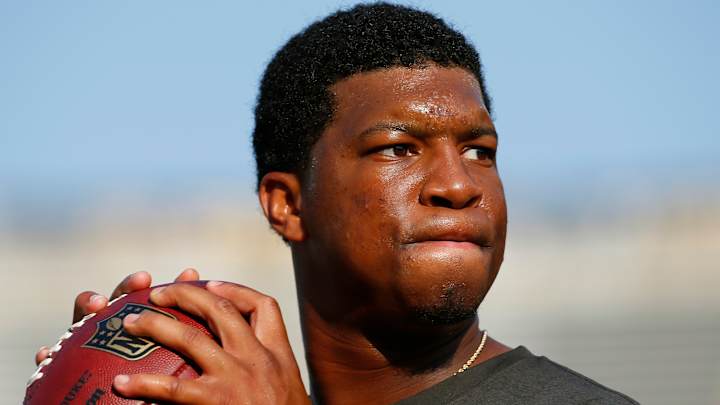Report: FSU struggled with Title IX guidelines in Jameis Winston case

Florida State struggled to interpret Title IX guidelines regarding allegations of rape against Jameis Winston, reports the Tampa Bay Times’ Matt Baker.
According to the report, newly obtained documents show that the school’s policy on Title IX changed in 2013, around the time the university was planning on pursuing a disciplinary hearing regarding Winston’s alleged rape of FSU student Erica Kinsman.
Kinsman’s eventual Title IX lawsuit accused FSU of being indifferent to her sexual assault case. She also claimed that the school hindered the investigation so that Winston could continue to play football.
“I don’t think I was ever informed formally as to why it was changing,” then-director of FSU’s victim advocate program Melissa Ashton said of the Title IX policy in a deposition, according to the report. “It was just this is what we’re doing now. This is what we have to do now.”
• ELLIS: What did each SEC team learn in the 2015 season?
The changes largely resulted from a 2011 requirement of the U.S. Department of Education’s Office for Civil Rights that schools across the country “change the culture of on-campus sexual harassment and violence.” In wake of the initiative, universities were not given specific guidelines on how to comply.
“They weren’t changing by the minute, but things were changing every time new guidance would come out,” Association of Title IX Administrators executive director Brett Sokolow told the Tampa Bay Times. “And new guidance was coming out left and right.”
At that time, Ashton says FSU was “trying to figure it out” each time the Title IX standards were updated.
Winston’s rape allegations were not reported to a Title IX coordinator in January 2013. Once the case became public that fall, and another involving Winston and a different woman was reported to FSU’s housing department, Ashton says the university’s pursuit of all reported cases was further altered.
“(The) University said we are moving forward on all cases, regardless of victim wishes, because we are mandated to,” Ashton said in the deposition, according to the Tampa Bay Times. “So, it was our understanding that at that point, the University was going to be moving forward on that other case.”
• SCHNELL: Sizing up Big 12 expansion, Texas’s future
While no hearing occurred for the second case, FSU reached a settlement with Kinsman last month. Winston, who has denied wrongdoing, was never arrested or charged for a crime.
Since the Winston case, Ashton says FSU’s Title IX policy has changed yet again.
